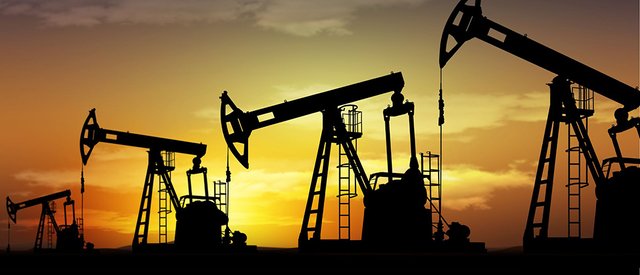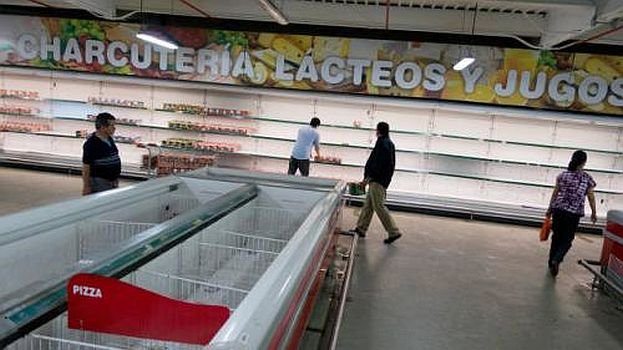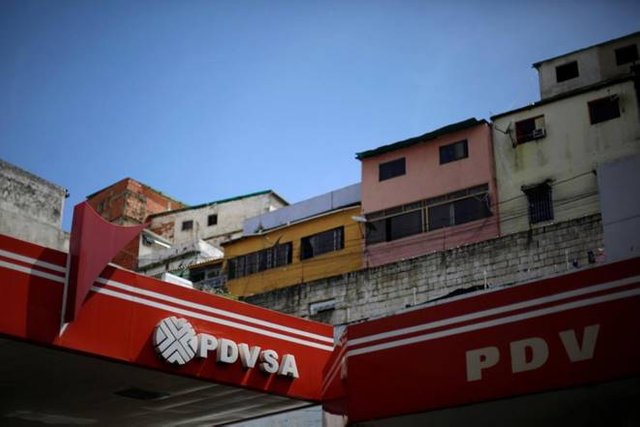Venezuela: The Paradox of Plenty.
Do you think every time we are given something for free, something else is taken away from us?
Well, that seems to be the case for my beloved Venezuela.

Venezuela happens to be the country with the largest oil reserves in the world with an approximate total of 300,878million proven barrels; Saudi Arabia is found second with 266,455 million and Canada third with amounts close to 169,709million, as shown by U.S. EIA by the start of 2017 on a Wikipedia’s article.
It represents 17,43% of the world’s oil reserves according to the same article. If we take into account that there are 28,946,101 as stated by last official census run in 2011 by the INE, it sounds logical to think the country should be rich as a lot of countries with oil-focused economies are.
However those assumptions would be just wrong and I haven’t even mentioned its gold and other mineral reserves and how tourism could be exploited.
I have been working here on Steemit for 4 days already, and I have made roughly USD 10 (including Steem Power, so I won’t really see that much money just yet) which translates to around Bs. 7,500,000 in black market exchange rates (the only way for you to buy dollars, unless you have contracts with the government). Nevertheless, minimum wage in the country equals Bs. 392,646.46 plus an obligatory food bonus of Bs. 915,000 adding up to a total monthly income of Bs. 1,307,646.46 Source (less than USD 2). Put simply, I almost made six times as much money when I haven’t even earned that much yet.
And believe me, not many people make much more from that minimum wage, unless they have their own business, work informally or have figured out a way to earn in a foreign currency (me).

Now that you know the context (you are probably fed up by it already from other medias) I will talk about why I think having too much of a resource almost effortlessly, may not be for a country’s best interests. To check out more about the “situation”, as may of us call it, click here.
The Paradox of Plenty.
Also known as the Resource Curse, it refers to the irony seen in some countries around the world that have an abundance of natural resources, but seem to have struggles in their economic growth. Theories about why this occurs are very diverse, so I will just state my opinion on the subject, based on my experiences and what I have seen from, not only the government policies, but also the different behaviors Venezuelans have adopted.
Where it all began.
I know I have given you some context about the circumstances here already, but I am afraid I must continue with some more exposition as maybe not all of you are fully familiar with our past and I feel in the need of telling my own side of history.
Prior to the first important oil drillings in the 1910’s, Venezuela based its economy on agricultural exports, mainly cocoa and coffee beans, but soon, it started to realize exporting its vast reserves of oil would be much more profitable. However, the country was not technologically advanced enough to do such a thing, so, long story short, American and British companies were hired for drilling in 50-50 deals, becoming its predominant exporting good and source of income (more) . Even though those deals became better eventually, it started to create a feeling of unfairness among the citizens. In 1958, Marcos Pérez Jiménez’s right-wing dictatorship was overthrown. It was a glorious time for Venezuela’s advancements, but an infamous period for Human Rights. In addition to that, in 1983, the ‘Viernes Negro’ (Black Friday) showed how some monetary policies meant for a very significant devaluation on the currency.
Before that, Venezuelans’ life was great. People could afford the most important goods and more than just that. Nevertheless, it could be felt how a social division started to be created. Some were getting richer, and others not so much. But in general terms, the middle class sector was at its peak. After Viernes Negro, the social disparity started to grow, which led socialist and communist parties to grow with them, until the inevitable happened.
El Caracazo
This event took place in Caracas in 1989, where protests resulted in chaos, riots and heavy civilian casualties, due to the social problems I mentioned and a gasoline price increase caught everyone off guard. One of the main actors to play a role here was former president Hugo Chávez, who in a way ignited some people and military men to start a failed coup.
Thus far, I have only mentioned pretty much facts of our history, but now I will what the results of all of that produced.
First off, Hugo Chavez’s office inspired hatred towards the USA and everything that “smelled” like the right. For that reason, they decided to nationalize most of the companies in the country, although Venezuelan oil had already been nationalized in 1976 with the creation of PDVSA (Petroleum of Venezuela), which controls all the national reserves of oil and natural gas. Chavez’ policies were meant to diminish the social gap in the country, where poor people had according to him fewer chances to get education and healthcare of quality among other things (even though there had been free education and public hospitals for many decades by then).

Oil prices boom up – We are doomed.
It was the beginning of 2008 and oil prices were at its highest. Therefore, it seemed reasonable for them to increase spending and reinvest all of that revenue on the same oil sector. Why would you waste money on other sectors if you have so much oil? You could buy just anything you wanted and the money seemed to be infinite. Lots of things were for free and others were regulated at a standard price (despite the inflation generated by the printing of bills to pay for most of the inner spending).
Populism was the best way for the government to keep adepts on their side. Meritocracy was no more and no matter how skilled you were (are), if you weren’t with the party, you would not be part of the public companies. So little by little, PDVSA turned into the main force of income in the country as never seen before, and most of the basic products started to be imported (around 60% of all products). That leaves us with just one sector of the economy having to sustain a whole country with crazy spending, and were skilled workers were not appreciated. Thankfully, oil prices were really high, at up to $150 a barrel, except it didn’t last long…
In 2014, oil prices plunged, so the model was no longer possible to maintain. And, if it is true things were already not looking good (crime rates were horrendous, for instance), that originated several consequences including food scarcity (there was little to no national production and no money to import) and others that I have already discussed above. But one consequence I haven’t brought up yet is that a big sector of the people enjoyed how the model was going. They got used to be given things for free, in a way that many preferred to queue in huge lines than looking for alternatives to generate income or study or simply look for an alternative.
I am a defender of free markets, so it saddens me to see how people get so happy about seeing government officials to forcibly reduce the prices of products in small businesses (which they are always increasing due to inflation) which only damages even more what is left of the private sector. Many of us are trying to study, to work, to keep our decency to survive here. But others are not doing that. They expect to get food for free and want to have the easy solution for our problems.
Hello. It is good to hear a Venezuela citizen's view of their country. We don't hear much about your country besides USA saying it is bad.
I would like to know more out of curiosity how a country so rich in oil can now have hyperinflation and every service failing.
Why cannot the country grow it's own food is my first obvious question?
Thanks for the comment!
Well, the reason is the government has control over most of the production here. It's difficult to do something without their approval. They usually just allow people to get their contracts if they are somehow related to them. Secondly, if you managed yourself to grow somethng, you'll have to sell that to the price they tell you. The thing is that there is hyperinflation, so it has happened many times before that people get loses when selling their products for the raw materials get more expensive each time.
And that's just the tip of the iceberg. I'll probably keep on posting more about my country in the future.
Oh really there is that much control? I understand the hyperinflation making it more expensive.
Could a small group of people or community get together and help each other grow food for each other or is this a crazy question?
Today I also found out, after I read your post, how PDVSA now has to pay $2 billion compensation to ConocoPhillips for nationalising two oil fields they some how have claim too. There is corruption all around, More bad news for your country unfortunately.
Yes, there is indeed that much control over prices.
I guess growing some crops around by the community could be done. However the following problems have and will come up:
-To do so everything that is grown should be consumed by those who work on it and not sold. But if that were the case, that is not helping much but only those growing the food. The rest of us who are involved in other sectors would have to stop doing what we do and just dedicate to agriculture. That's just not something possible in the 21st century.
-Supplies such as pesticides or fertilizers are not being produced in here, and must therefore be imported. The problem being you would need to get dollars to do so and there just aren't many of those around any more, unless you buy them on the black market. So micro economic agriculture is not the answer here.
The only way to improve the situation here is by promoting international investment by great proportions. Food can be found in here, just that prices are too high and companies can't afford to pay much money to their employees now. But if other companies invest money here (there are lots of reasons to do so), they could afford higher wages. The problem is that no one will ever invest a peny in here when you know there is a government that nationalizes your company when they don't like something you do. Put simply, the government must be removed first.
Beautiful photography, thank for sharing!
I am glad you think that! You should read the content, though, it's better lol.
Thanks for commenting!
Hahaha.. Now that's a comment :P
funny :D